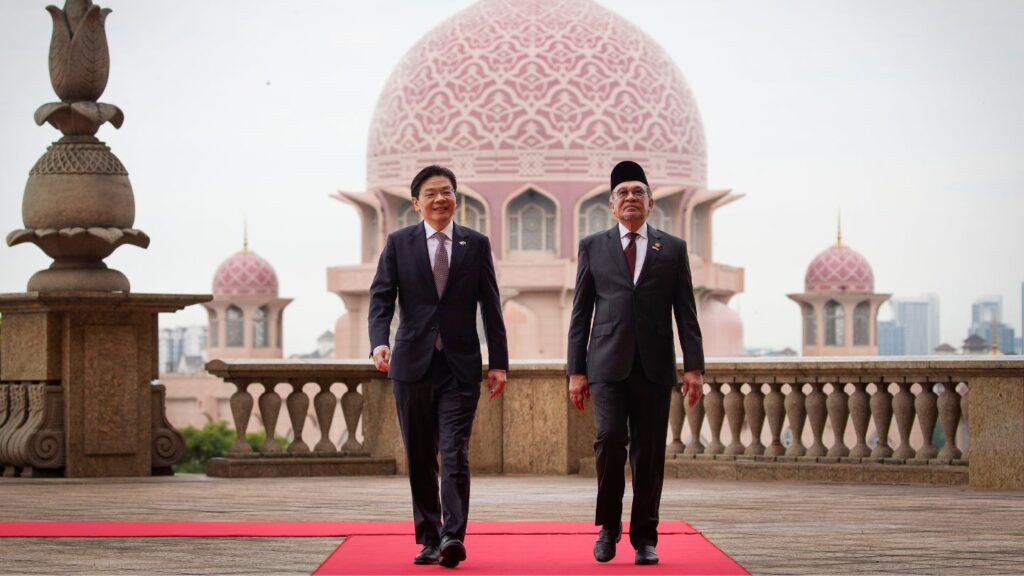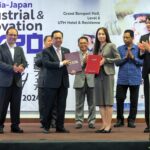ASIA ELECTRONICS INDUSTRYYOUR WINDOW TO SMART MANUFACTURING
New Malaysia-Singapore Zone to Lift Region's Might
The recent meeting of Malaysian Prime Minister Dat’ Seri Anwar Ibrahim and Singapore Prime Minister Lawrence Wong at the Malaysia–Singapore Leaders’ Retreat in early January has sealed the ambitious cross-border Johor-Singapore Special Economic Zone (JS-SEZ). Accordingly, the JS-SEZ marks a key milestone in Malaysia and Singapore’s bilateral relationship, which will mark its 60th year this year.
Leaders of the two countries sealed the deal with an agreement and both welcomed the JS-SEZ as a tool to improve the cross-border flow of goods and people and strengthen the business ecosystem.
The JS-SEZ, roughly 3,500sq.km in size, is about four times larger than Singapore itself and almost double China’s Shenzhen. Thus, the agreement is likely to lift the region’s investment and business in the global map.

Improve Cross-Border Connectivity
The JS-SEZ Agreement aims to strengthen the value proposition of Johor and Singapore to compete for global investments together. Specifically, the joint agreement aims to improve cross-border goods connectivity between Singapore and Johor and enable freer movement of people. At the same time, it also aims to strengthen the business ecosystem within the region.
Among the highlights of the agreement include a passport-free, QR-coded clearance at Singapore’s land checkpoints with Malaysia. It will also establish a one-stop shop center which Malaysia will lead. There will be increased partnerships as well in technical and vocational education and training initiatives.
Moreover, there will be streamlined customs procedures for land intermodal transhipments. Specifically, traders will only need a single transhipment permit with Singapore Customers for land intermodal transhipments instead of the usual two permits.
Malaysian Economy Minister Rafizi Ramli said the goal of the JS-SEZ is to develop 50 projects and employ 20,000 skilled jobs over the next five years. Moreover, the JS-SEZ aims to have a total of 100 projects in a decade.
In the next ten years, the JS-SEZ is expected to add US$$28 billion annually to Malaysia’s gross domestic product.
Meanwhile, Singapore-based companies can benefit from this enhanced connectivity for goods and people by expanding their business overseas and twinning business operations. Thus, tapping on the complementary strengths that Singapore and Johor offer. In fact, Teo Siong Seng, the chairman of the JS-SEZ Singapore Business Working Group of the Singapore Business Federation (SBF) told media reports (CNA) that more than 60 Singapore companies have already expressed interest in joining a business mission of the group by next month.
Strong Economic Ties
Several incentives await business locators to the JS-SEZ and among them is the special 5 percent corporate tax rate for up to 15 years for companies investing in high-value activities. Specifically, in artificial intelligence and aerospace manufacturing. Custom-made incentives also await for flagship zones while a special 15 percent income tax rate await workers.
The JS-SEZ aims to facilitate investments in 11 economic sectors from third countries and Singapore companies. Most especially, those that will promote digital vibrancy and technology adoption, as well as those companies that aim to achieve net-zero aspirations. These sectors are These sectors are manufacturing, logistics, food security, tourism, energy, the digital economy, the green economy, financial services, business services, education, and health.
The JS-SEZ will also focus on talent acquisition and nurturing. The JS-SEZ is betting big on high-value industries such as the digital economy, aviation, manufacturing and financial services. In a world where everyone is competing for top talent, Malaysia’s efforts to build a strong, competent labor force could prove prescient.
Singapore and Malaysia share strong economic ties. In 2023, Malaysia was Singapore’s third largest trading partner, with total bilateral trade amounting to S$123.6 billion1. Also, in the same year, Singapore was Malaysia’s second largest trading partner. In 2023, Singapore was Malaysia’s largest source of foreign direct investment (FDI), contributing RM 43.7 billion or 23.2% of Malaysia’s total FDI.
Within Malaysia, Johor has become a key investment destination for Singapore companies due to stronger economic partnerships and improved connectivity. In 2023, Johor recorded RM31 billion in FDI, with Singapore and the United States as the main investors in the manufacturing sector.
22 January 2024



